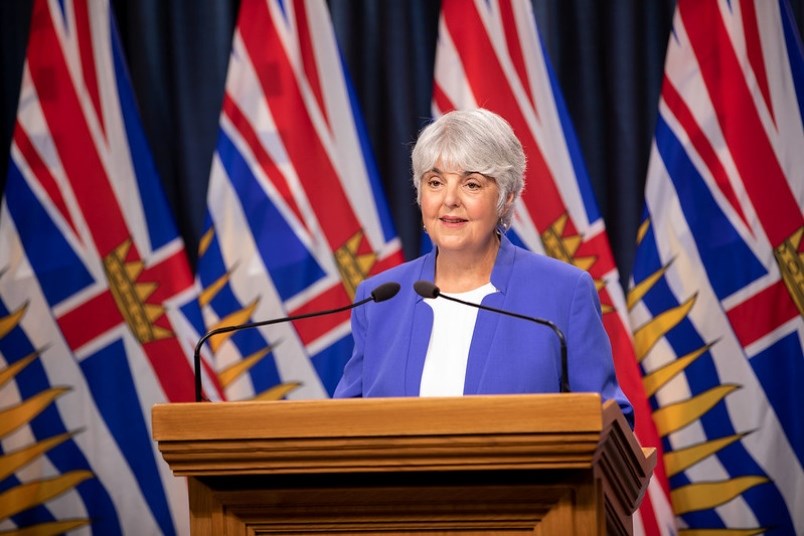Grants for small and medium-sized businesses, a taskforce dedicated to reviving B.C.’s ailing tourism sector and funding aimed at boosting a workforce rattled by record job losses are among the top priorities for the B.C. government as it rolls out its economic recovery plan.
The province unveiled its plan today (Sept. 17) amid speculation Premier John Horgan, who’s currently enjoying high approval ratings amid the pandemic, is eager to call a fall election.
"I've not made a decision about an election," Horgan said at the unveiling, later adding he's focused on launching the recovery plan.
"As I said, the difficult decisions of the trade-offs that are involved in making sure that we expand public resources in a way that's responsible for the taxpayer ... so they can [conduct business] safely, that's been our preoccupation quite frankly, and I think that this plan meets that test for today."
While the plan includes $1.5 billion in new spending, the government is also introducing $660 million in new tax measures and $500 million for a new strategic investment fund.
Among the big direct-spending priorities for the province is a $300-million recovery grant for SMBs that includes what the province describes as an “enhanced amount for tourism operators.”
A separate $50 million is being allocated to a new tourism taskforce charged with boosting an industry hit harder than most by travel restrictions.
That particular funding is expected to roll out this year and is part of $100 million being earmarked specifically for the tourism sector, with grants for local governments and tourism development initiatives also on the table.
The tourism industry had been seeking $680 million in support.
"We appreciate the funding announcement and assembly of the task force," Science World CEO Tracy Redies told Glacier Media after the province's announcement.
"It’s much less than the tourism industry needs to recover, but it’s a start. Science World cannot wait much longer to receive government funding as the results of shutting down and low visitor attendance have already had serious, negative impacts on our organization."
She told Glacier Media yesterday that if her organization does not get government support, it could close at least temporarily.
"It's a very comprehensive approach with more to come," B.C. Finance Minister Carole James said during a media briefing, adding British Columbians should expect more support for the industry to come in the 2021 budget.
Meanwhile, the province is allocating $300 million to create additional jobs in the province’s healthcare sector, to the tune of 5,800 more positions ranging from support staff at long-term care facilities to contact tracers.
Additional infrastructure spending will come by way of the province's new $100-million Community Economic Recovery Infrastructure program.
Another $660 million in new tax measures come on top of the $1.5 billion in direct spending, including $470 million in new PST rebates on business investments in machinery and equipment.
The province estimates 110,000 businesses are eligible for the rebates it hopes will encourage expansion through investing significantly in new machinery.
The remaining $190 million of the new tax measures will fund a 15 per cent tax credit for employers that expand their eligible payroll through the last half of 2020.
The $500-million strategic investment fund will be managed by an independent third party, not yet named, with the goal of boosting West Coast businesses with high-growth potential.
The recovery plan also sees $90 million in direct spending allocated to connecting rural and Indigenous communities to internet services.
Another $35 million is earmarked for the Centre for Innovation and Clean Energy, $31 million for an electric vehicle incentive program and $30 million to the commercial vehicle innovation challenge.
The recovery plan comes amid estimates from Victoria the provincial economy is set to contract 6.7 per cent this year before expanding by three per cent in 2021.
The Business Council of B.C. submitted two-dozen recommendations to the province in July aimed at spurring economic growth in the wake of the pandemic.
Recommendations include reducing the provincial sales tax to help households and small retailers, ramping up infrastructure spending for ready-to-go projects such as the SkyTrain extension to UBC and reworking municipal structures to expedite permitting.
The B.C. Chamber of Commerce followed up the next month with 54 recommendations to government, imploring the province to create a B.C. value-added tax — similar to the short-lived and hotly contested HST — and mitigate the impacts of the Employers’ Health Tax.
The chamber also recommended reforming municipal property taxes, expanding provincial climate benefits to allow small businesses to adopt lower-carbon technologies and removing PST on machinery and equipment to encourage business investment.
And earlier this month the Greater Vancouver Board of Trade (GVBOT) presented its own economic recovery plan to the province.
In it, the board urged the province to take a "science-based approach to travel restrictions" and fund marketing campaigns to encourage tourism.
It also wants the province to offer longer tax deferrals on remittances, launch a working capital grant program for small businesses, cut down on "cumbersome" and "outdated" regulations, boost childcare support and invest in other major infrastructure projects throughout the region, including the above-mentioned SkyTrain extension and the gondola up Burnaby Mountain to the main campus of Simon Fraser University.
With files from Glen Korstrom, Business In Vancouver




